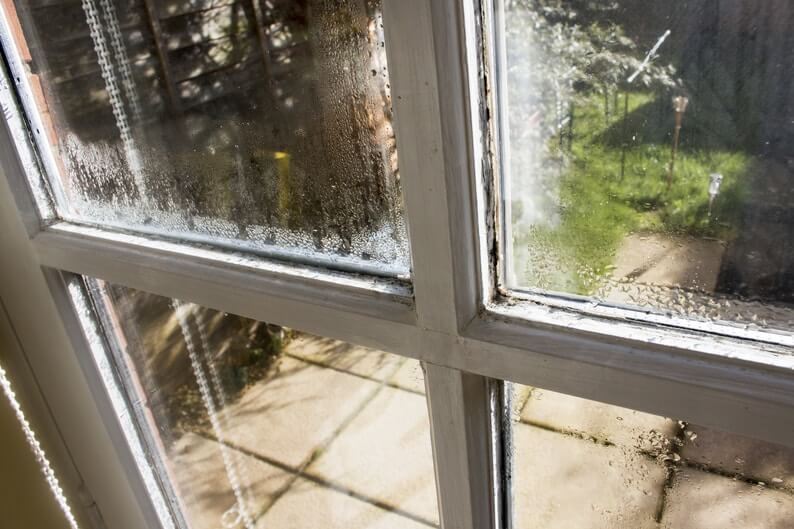
Is your Florida home consistently warm inside despite your best efforts to keep it cool? Well, before you become completely disgusted with your air conditioning system, take a minute to read about a potential culprit: humidity.
Why is my house so humid?
Florida is no stranger to extreme humidity levels, but besides making us feel uncomfortable outdoors, humidity may be making you uncomfortable indoors too. Humidity can make your home uncomfortable and feel hotter than it is, especially if moisture levels are very high. Fortunately, there are ways to decrease the humidity and take control of your comfort inside your home.
What causes high humidity in a house?
Your air conditioning system works to cool your home by removing heat and moisture from the air — but when humidity levels are excessive, your system has to work harder to provide the same level of comfort. If your home’s HVAC equipment doesn’t have sufficient cooling capacity, it won’t be able to cope with extreme humidity. The result? The temperature inside your home will never be truly comfortable.
Ideal Indoor Humidity Level
So what exactly is the ideal indoor humidity level? How much humidity is too low and how much humidity is too high?
According to the Environmental Protection Agency (EPA), the ideal indoor humidity level is around 40% and no higher than 50%. At these levels, the air is both comfortable and healthy to breathe.
With that in mind, it’s important to know that too much indoor humidity isn’t just uncomfortable – it can be bad for your home and your health.
What is considered high humidity?
An indoor humidity level is too high when it’s above 50%.
At this level, your home is susceptible to increased dust mite infestations, as well as mildew, mold growth, and other bacteria. This can cause serious health issues for those who breathe in mold spores or are exposed to bacteria for long periods of time.
Symptoms of High Humidity in Your Home
With the above information in mind, here are symptoms of high levels of humidity in your home:
1. Moist and clammy air. One of the most noticeable signs of an excess humidity level is the air in your home feels moist and clammy. Your skin may feel noticeably moist indoors as well.
2. Foggy windows. Humidity is essentially vaporized water in the air, so when it is trapped in your home, it can fog the windows.
3. Mildew smell. High levels of humidity can cause dampness in your home resulting in an unpleasant musty smell.
4. Visible mold. Have you spotted a mold stain in your home? Excess humidity (especially in areas of your home that are partial to moisture like the bathroom, kitchen, and laundry room), can quickly become a problem if it breeds mold.
5. Rotting wood. If you notice rotting wood around your home, it could be a sign of excess moisture.
6. Allergies are more intense. If you suffer from allergies that seem to worsen inside your home, it could be caused by poor indoor air quality. Excess moisture in the air can cause airborne allergens like mold spores to grow and spread.
More articles on controlling humidity:
What Do I Set My Humidistat At?
10 Tip for Removing Humidity From Your Home
Make Your Home Less Humid With Sansone
There are lots of ways to control humidity in your home. For starters, your air conditioning system has a huge effect on how much moisture is in your home. But if your air conditioning system isn’t properly maintained, you may notice that your home feels more humid than it should. Before resorting to a dehumidifier, we recommend allowing one of our West Palm Beach air conditioning service technicians to perform an inspection and tune-up on your HVAC system. They will be able to determine if your system is the cause of your home’s excess moisture.
If you’re ready to improve your home’s comfort, contact us today, and check out our other blogs for more dehumidifying tips.

